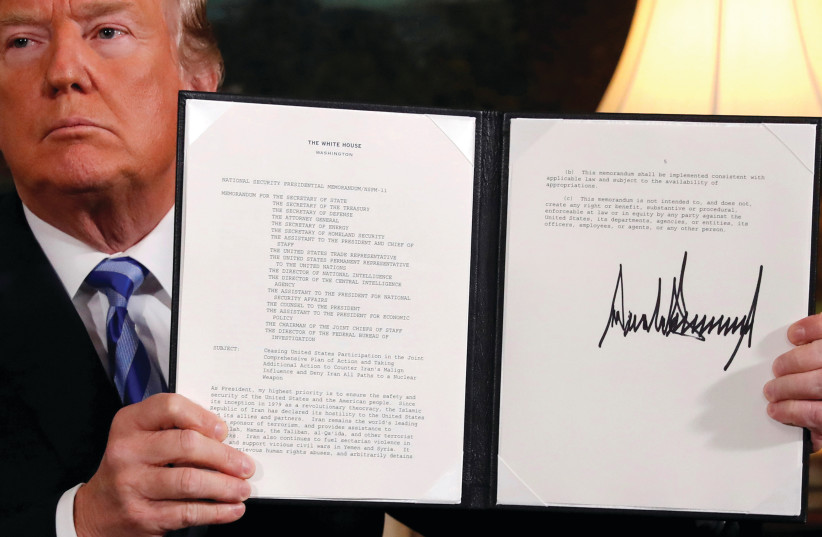Former US president Donald Trump claimed that Evangelical Christians seem to be more supportive of Israel than US Jews are, in months-old interview snippets released on Friday.
“There are people in this country that are Jewish that no longer love Israel,” the former US president said in an interview with Israeli journalist Barak Ravid. “The Evangelical Christians love Israel more than the Jews in this country.”
Trump had recently made headlines earlier this month due to controversial comments he made regarding former prime minister Benjamin Netanyahu, saying “f*** him,” due to Netanyahu’s congratulatory video of Biden’s electoral victory to become the new US president. He also accused Netanyahu of deceiving him about his sincerity to make a peace deal with the Palestinians as well as other comments pertaining to Netanyahu’s “lack of loyalty and gratitude for [Trump’s] favorable policies toward Israel.”
New quotes from Trump to @BarakRavid: Most US Jews don't love Israel. Exclusive for Unholy podcast @Freedland pic.twitter.com/Hv4joYkbCN
— Yonit Levi (@LeviYonit) December 17, 2021
“It used to be that Jews had absolute power over Congress and today I think it’s the exact opposite. And I think Obama and Biden did that,” the former US president continued. Trump had made a similar remark last month when he said that “Israel literally owned Congress” in an interview on the Ari Hoffman Show. Trump claimed that one of the biggest shifts in the US Congress has been that more anti-Israel politicians were given more political power, loosely referencing the group of progressive congresswomen known as “The Squad.”
The majority of Jewish voters in the 2016 and 2020 elections voted against Trump, instead largely preferring Democratic candidates, despite his administration largely having pro-Israel viewpoints, recognizing Israeli sovereignty over the Golan Heights, playing a key role in the Abraham Accords and moving the US Embassy to Jerusalem. A majority of Evangelicals have voted for Trump in the past as well as other Republican officials.

In response to the majority of American Jews voting Democrat, Trump stated that “the Jewish people in the United States either don’t like Israel or don’t care about Israel.”
“You look at The New York Times, they hate Israel. And there are Jewish people that run The New York Times.”
These recent comments sparked a backlash from some Jewish organizations, criticizing Trump for propogating perceived antisemitic tropes.
Let me be clear: insinuating that Israel or the Jews control Congress or the media is antisemitic, plain and simple. Unfortunately, this is not the first time he has made these offensive remarks.
— Jonathan Greenblatt (@JGreenblattADL) December 17, 2021
"Once again, former president Trump has linked his lack of strong support among most US Jews to their feelings about Israel and use classic antisemitic stereotypes about Israeli and Jewish control of Congress and the press to bolster his argument," Anti-Defamation League (ADL) CEO Jonathan Greenblatt tweeted.
"It's sad that once again we have to restate this point, but the vast majority of American Jews support and have some type of connection to Israel, regardless of which political candidate they vote for," he added. "Let me be clear: insinuating that Israel or the Jews control Congress or the media is antisemitic, plain and simple. Unfortunately, this is not the first time he has made these offensive remarks."
"Why is Mr. Trump once again fueling dangerous stereotypes about Jews?" the American Jewish Committee (AJC) tweeted.Why is Mr. Trump once again fueling dangerous stereotypes about Jews?His past support for Israel doesn’t give him license to traffic in radioactive antisemitic tropes — or peddle unfounded conclusions about the unbreakable ties that bind American Jews to Israel. Enough! https://t.co/RueucblSwu
— American Jewish Committee (@AJCGlobal) December 17, 2021
Jeremy Sharon, Natan Khodorkovsky and Jerusalem Post Staff contributed to this report.
